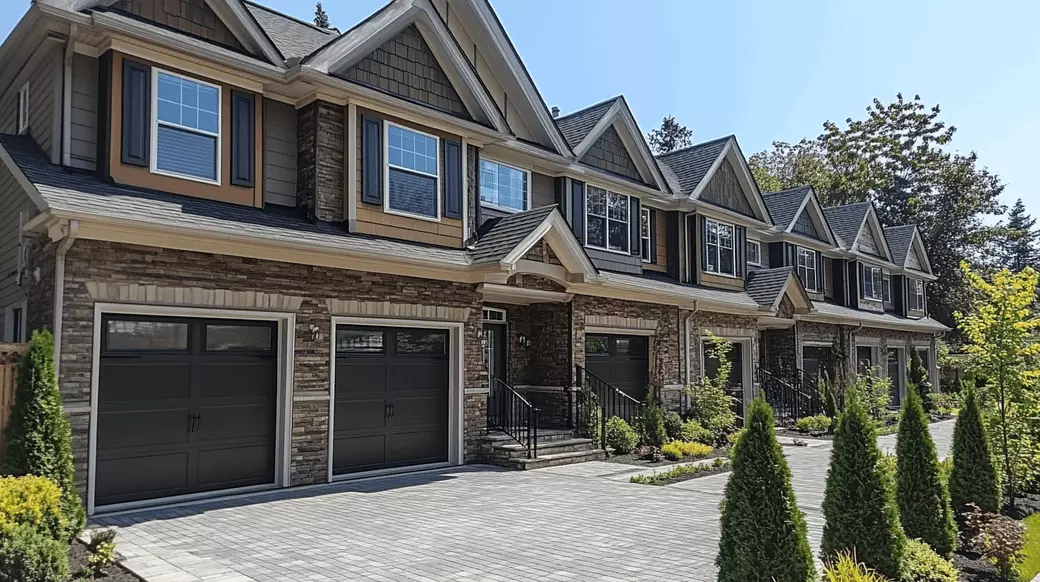Navigating Co-op Challenges: Expert Tips for a Smooth Board Approval

Welcome to another in-depth look at the Long Island real estate market by Dream Select Realty. This time, we are shining the spotlight on Condos and Co-ops—two popular property types in Nassau and Suffolk Counties. While single-family homes often get the most attention, condos and co-ops have their own appeal, offering different lifestyles, lower maintenance, and various price points. In 2025, we are seeing more homebuyers consider these options for both affordability and convenience.
In this article, we will cover:
- Trends in Nassau County’s Condo and Co-op Segments
- Suffolk County’s Growing Condo Market
- Navigating the Co-op Approval Process
Trends in Nassau County’s Condo and Co-op Segments
Overview of Nassau’s Condo and Co-op Landscape
Nassau County, closer to New York City than Suffolk, has a long history of co-op buildings and a newer but growing range of condo developments. If you drive through towns like Great Neck, Mineola, or Roslyn, you will notice many mid-rise and garden-style co-op complexes built decades ago. In more recent years, condo projects have popped up, often with modern amenities like gyms, lounges, and rooftop terraces.
Why the Growth?
- Commuter Appeal: With multiple Long Island Rail Road (LIRR) stations spread across Nassau, many people find it convenient to hop on a train and reach Manhattan quickly. Condos and co-ops near these stations attract both young professionals and downsizing seniors.
- Lower Maintenance: Co-ops and condos often have monthly fees that cover repairs, landscaping, and building upkeep. In return, you do not have to worry about mowing the lawn or shoveling snow.
- Community Living: Some buyers enjoy the sense of community that condo or co-op buildings can offer, with shared common areas and organized activities.
Condo Popularity in Nassau
Condos in Nassau can be mid-rise or townhouse-style. Over the past five years, we have seen a growing interest from buyers who want the benefits of property ownership (like building equity) but without the responsibilities of owning a large yard. Developers have responded by building condos with appealing features:
- Modern Floor Plans: Open concepts with spacious kitchens and living areas.
- On-Site Amenities: Gyms, pools, clubhouses, and sometimes even doorman services.
- Parking Solutions: Private garages or assigned spaces, which is a big plus in busy towns.
The average price for a condo in Nassau can range widely—from the low $300,000s for older units to over $1 million for luxury buildings in prime locations. The actual price depends on factors like square footage, age of the building, amenities, and neighborhood school districts.
Co-ops Remain a Strong Choice
Nassau also has a robust co-op market, especially in areas that developed mid-century. Co-ops can be more affordable compared to condos, making them popular with first-time buyers. Monthly co-op fees often include property taxes, heat, and even basic cable in some buildings.
However, these benefits come with more rules:
- You typically need co-op board approval before you can buy.
- You might face restrictions on renting out the unit or renovating.
- Some co-ops have strict requirements about debt-to-income ratios and credit scores.
Despite these rules, many buyers appreciate co-ops for their lower entry cost and simpler lifestyle. Places like Great Neck and Rockville Centre are known for their co-op communities.
Where Dream Select Realty Comes In
At Dream Select Realty, we help clients determine whether a co-op or condo is right for them. We consider commute needs, desired amenities, budget, and lifestyle. We also explain the pros and cons, including any special rules. With our local experience, we can guide buyers to the right building in the right area, saving time and potential headaches.
Suffolk County’s Growing Condo Market
Why Suffolk County?
Stretching eastward to the Hamptons and the North Fork, Suffolk County is the largest county on Long Island. Traditionally, it has been known for single-family homes, but the condo market has been on the rise. This is partly because:
- More Land for Developments: Some developers see Suffolk as a place to build new condo communities, offering modern designs and amenities.
- Lower Prices than Nassau: In many Suffolk towns, condo prices can be lower than in comparable areas of Nassau, giving first-time buyers a chance to enter the market.
- Lifestyle Appeal: Suffolk’s mix of suburban, rural, and coastal areas attracts people who want easy access to parks, beaches, and nature.
Types of Suffolk Condos
- Townhouse-Style Condos: These look similar to row houses and often come with small yards or patios. They can be found in places like Holtsville, Medford, or Central Islip—areas experiencing new development.
- 55+ Communities: Suffolk has many active adult communities designed for buyers who are 55 or older. These condos often include clubhouses, golf courses, and social events. Locations like Hauppauge, Lake Grove, and Riverhead have notable 55+ communities.
- Luxury Waterfront Units: The East End, including parts of Riverhead and the North Fork, offers upscale condos with water views, marina access, and other resort-like features.
Pricing in Suffolk
Prices vary widely based on location, size, and amenities. In many suburban areas, you might find a townhouse-style condo starting in the high $200,000s to mid $300,000s. Waterfront and luxury units can exceed $700,000 or more, especially in prime coastal spots. While prices in Suffolk tend to be more affordable than in Nassau, competition for well-priced condos can still be fierce.
Emerging Trends in Suffolk Condos
- Eco-Friendly Designs: Developers are adding solar panels, energy-efficient windows, and other green features.
- Community Amenities: From walking trails to outdoor pools, condo complexes are focusing on recreation and socializing.
- Pet-Friendly Policies: More complexes are loosening restrictions to attract pet owners.
Navigating the Co-op Approval Process
Co-op vs. Condo: Key Differences
Before diving into the approval process, it is important to understand how co-ops differ from condos:
- Ownership Structure:
- In a condo, you own your individual unit plus a share of the common areas.
- In a co-op, you own shares in the corporation that owns the entire building. Your “apartment” is technically leased to you by the co-op.
- Monthly Fees:
- Condo Fees typically cover upkeep of common areas, amenities, and sometimes water or trash services.
- Co-op Fees (often called “maintenance”) can include property taxes, building mortgage payments (if applicable), and utilities.
- Board Approval:
- Condos generally do not require board interviews or extensive screenings.
- Co-ops almost always do, and they can deny applications for various reasons.
The Co-op Board Interview
One big step in buying a co-op is passing the board interview. This can feel intimidating, but Dream Select Realty helps you prepare. The board interview usually involves:
- Financial Disclosure: Providing pay stubs, bank statements, and tax returns to show you meet income or asset requirements.
- Background Check: The co-op board may look at your credit report, references, and even your employment history.
- In-Person Meeting: The board may ask you questions about why you want to live in their community, your lifestyle, or plans to renovate the unit.
Pro Tip: Be polite, dress neatly, and answer questions honestly. Boards want residents who will respect the building rules and pay fees on time. If you come prepared, you are more likely to make a good impression.
Financing a Co-op
Co-op buyers should know that not all banks or lenders finance co-ops. A co-op must be on a lender’s “approved list.” Dream Select Realty can suggest local lenders who have experience with co-ops in Nassau or Suffolk. Additionally, down payment requirements can be higher for co-ops—some buildings ask for 20% or more.
Co-op Rules and Restrictions
Every co-op has its own set of bylaws and rules. Common restrictions might include:
- No Subleasing or strict rental policies
- No Pets or size limits on pets
- No Major Renovations without board permission
- Limits on Guests or parking restrictions
Make sure you read the co-op’s rule book carefully before buying. We at Dream Select Realty help clients understand these rules so there are no unpleasant surprises after closing.
Bonus Section: Pros and Cons of Condos and Co-ops
Pros of Condos
- Ownership Control: You own your unit outright, making it easier to remodel or rent out if the building allows it.
- Lower Board Hurdles: Condo boards generally have less power to deny buyers.
- Variety of Options: Modern designs, townhouse setups, and high-rise buildings—condos come in many forms.
Cons of Condos
- Potentially Higher Prices: Condos, especially newer ones, can have a higher purchase price compared to co-ops of similar size.
- Separate Property Taxes: You are responsible for taxes on your individual unit.
- Monthly Fees: While this also applies to co-ops, condo fees can be significant in luxury complexes.
Pros of Co-ops
- Lower Purchase Price: Co-ops often cost less than condos in the same location.
- Monthly Maintenance: It may include taxes, heat, and some utilities. This can be simpler for budgeting.
- Stable Community: Boards carefully screen applicants, resulting in quieter or more stable communities.
Cons of Co-ops
- Board Approval: You could be turned down by the board, or the process might be slow.
- Restrictions: You often need board approval for subletting, renovations, or even certain décor changes.
- Resale Challenges: When you sell, your buyer also has to pass the co-op board, which can prolong the selling process.
Practical Tips for Buyers
- Get Pre-Approved: Whether you are buying a condo or co-op, knowing your budget shows sellers (and boards) that you are serious.
- Check the Building’s Financials: Request to see the condo or co-op’s financial statements. A building with strong reserves is less likely to impose big fee increases.
- Location Matters: Even within the same county, communities vary. Near the beach or train stations, you might pay a premium.
- Hire a Local Agent: An agent who knows Long Island—like Dream Select Realty—can steer you to buildings with good management and fewer headaches.
Practical Tips for Sellers
- Set the Right Price: Look at recent sales in the same complex. Overpricing can lead to longer days on the market.
- Showcase Amenities: Highlight special features like pools, gyms, or doorman services in your listing.
- Boost Curb Appeal: Even though you do not control the entire building, make sure your unit’s front door, lighting, and interior are clean and inviting.
- Board Package: If you are selling a co-op, gather information about the building’s application process and pass it on to potential buyers. The smoother the process, the more likely you will attract serious offers.
How Dream Select Realty Can Help
At Dream Select Realty, our goal is to make condo and co-op transactions as seamless as possible. Here is what we offer:
- Local Knowledge: We know which buildings in Nassau and Suffolk have strong financials, flexible rules, or newly renovated amenities.
- Expert Guidance: From picking the right property type (condo vs. co-op) to understanding monthly fees, we walk you through each step.
- Board Preparation: If you are buying a co-op, we help you prepare for the board interview and gather all necessary documents.
- Price Analysis: If you are selling, we conduct a thorough analysis to set a competitive price and get you the best offers.
- Negotiation Skills: Condos and co-ops can involve unique negotiations—like discussing board approval timing or dealing with special assessments. We handle the details to protect your interests.
Future Outlook for Condos and Co-ops on Long Island
Market Stability
Despite possible economic ups and downs, condos and co-ops on Long Island tend to maintain consistent value due to the area’s high demand, proximity to NYC, and desirable school districts. Even in times of housing market fluctuations, there is usually a group of buyers who prefer the convenience and lower maintenance of this property type.
More New Construction
In Suffolk especially, we anticipate more new condo developments will appear. Some may focus on 55+ communities, where baby boomers seek a simpler life without the upkeep of a large home. Others will aim at younger professionals who want modern features at a lower cost than single-family homes in the same area.
Evolving Amenities
The race to offer better amenities will likely continue. Buildings might add:
- Co-working Spaces: Catering to remote workers.
- Green Roofs and Solar: To lower energy costs and attract eco-conscious buyers.
- Smart Home Technology: Integrated security, lighting, and temperature controls for each unit.
Potential Challenges
- Rising Maintenance Fees: As buildings age, they might need major repairs (like new roofs or boilers). Expect potential assessments.
- Board Regulations: Co-op boards could tighten or loosen rules based on owner feedback, possibly changing the rental landscape.
- Competition from Single-Family Homes: If interest rates drop or if new single-family developments pop up with competitive pricing, some buyers might switch back to that market.
Conclusion
Condos and co-ops play a major role in the Long Island real estate world, especially for those seeking lower-maintenance living, affordability, and community amenities. Nassau County boasts a long-established co-op market and a rising number of modern condo complexes. Suffolk County, known more for single-family homes, is steadily catching up with a wave of new condo developments and growth in 55+ communities.
Understanding the difference between condos and co-ops is crucial:
- Condos give you individual ownership and fewer restrictions, but often come with higher purchase prices.
- Co-ops can be more budget-friendly and include more in the monthly fee, but the board approval process and potential limitations can be challenging for some buyers.
At Dream Select Realty, we are here to simplify the process—whether you are buying your first co-op, looking to downsize into a Suffolk condo, or selling your unit for top dollar. We know the local markets, the boards, and the hidden gems that make Long Island a great place to call home.
Key Takeaways
- Nassau County offers a robust mix of established co-ops and modern condo buildings, highly popular with commuters.
- Suffolk County is expanding its condo offerings, drawing both young families and retirees with more land and lower prices.
- Co-op Approval requires thorough financial checks and board interviews—be prepared.
- Condo/Co-op Pricing varies widely based on location, age of the building, and amenities.
- Future Outlook includes stable demand, new construction (especially in Suffolk), and evolving amenities.
Thank you for spending time with us to learn about the Condo and Co-op Market on Long Island in 2025. If you have any questions or need personalized advice, reach out to Dream Select Realty. We are always ready to help you find the perfect property or guide you through the selling process.
Recent Posts











